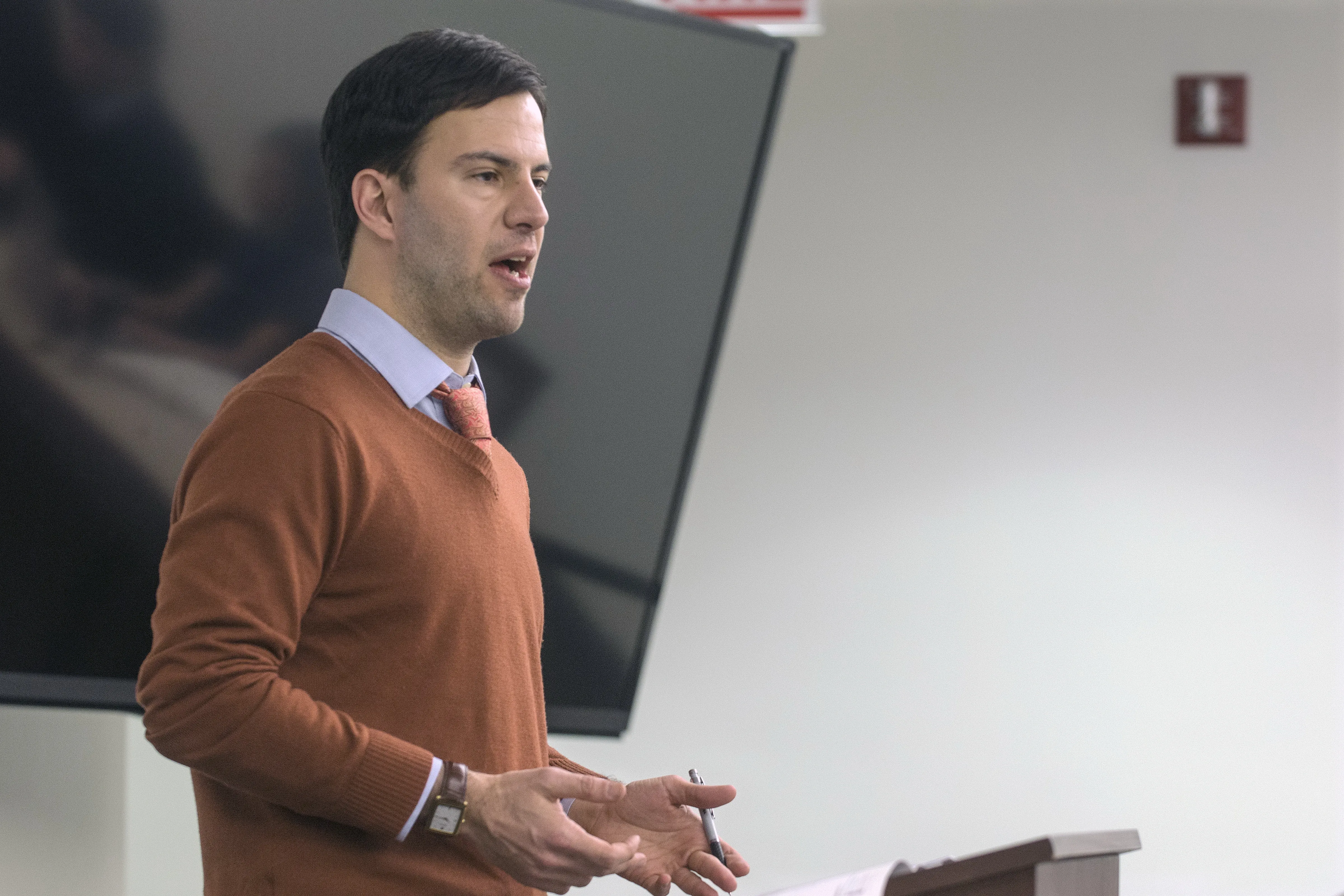New Season of ‘Research Matters’ Highlights Faculty Scholarship

Ever wonder what makes certain constitutional rights more effective? Or how opposition to the 1964 Civil Rights Act can help us better understand reactions to high-profile U.S. Supreme Court cases today? Want to know more about why the artificial redistribution of tax revenue is of growing concern, or what liberal ambivalence toward civil liberties during the New Deal period can tell us about today’s First Amendment debates?
This fall, the Law School’s online Research Matters series highlighted a new round of work from the Law School’s prolific faculty, offering fresh insights on a variety of topics in a Q&A format designed to be informal, conversational, and accessible. The series, which launched in April 2013, has included 32 installments featuring 29 professors.
The series was the brainchild of Professor Randy Picker, who once noted: “Faculty research is important in the way that it creates and shapes ideas and then shows up in the classroom. And the point of Research Matters is to try to make that process clear to all.”
So far this academic year, Research Matters has highlighted:
- Professor Nicholas Stephanopoulos’ paper “Partisan Gerrymandering and the Efficiency Gap,” which introduces a new method for measuring the fairness of partisan district lines. Stephanopoulos and his co-author found that in the past 40 years, gerrymandering has gotten worse — and it has largely favored Republicans. Why this matters: “It affects the policies coming out of legislatures,” Stephanopoulos said. “At the federal level, if there had been an efficiency gap of zero in every state in 2012, Democrats would have controlled the U.S. House. The last two years would have been completely different with a Democratic Congress. Immigration reform would have passed, a climate-change action might have been taken. Gerrymandering is not just about seats and votes; if you affect who gets elected, you affect which policies come out.”
- Professor Dhammika Dharmapala’s paper “Base Erosion and Profit Shifting: A Simple Conceptual Framework,” which helps explain an international taxation issue that is of rising concern in the increasingly global economy. The piece is designed to give non-tax experts background on base erosion and profit shifting, a tax-planning practice in which multinational firms exploit inconsistencies in the tax laws of different countries to reduce their tax burden. Why this matters: “This is probably the most important current policy initiative within the international tax arena,” Dharmapala said. “If (reform efforts) are at all successful, it will result in new legislation and new sets of rules in various countries, and it is better that those changes in policy take place in an environment with more information.”
- Assistant Professor Laura Weinrib’s paper, “Civil Liberties Outside the Courts,” which examines surprising shifts in how conservatives and liberals viewed civil liberties during the New Deal period. In it, she explores a less-often-told side of history: the ambivalence of liberal New Dealers toward civil liberties and conservatives’ reluctant embrace of the project. Why it matters: “I think that debates over the First Amendment have been unduly constrained by this idea that a strong, anti-state, judicially enforceable First Amendment has always been central to concepts of American constitutional democracy,” Weinrib said. “I hope that recovering the frenzied debate of the 1930s about the costs of a strong First Amendment will open space to debate alternative visions today.”
- Professor Justin Driver’s paper, “Reactionary Rhetoric and Liberal Legal Academia,” which explores opposition to the 1964 Civil Rights Act as a way of better understanding the reactions of today’s left-leaning law professors to high-profile U.S. Supreme Court decisions. Why it matters: “Examining history can sometimes shed light on our own times,” Driver said. “I hope this piece will help people to better understand opposition to today’s civil rights ventures and also to contemplate how that opposition seems likely to be remembered. I also wanted to warn judges about the dangers of internalizing reactionary rhetoric.”
- Assistant Professor Adam Chilton’s paper, “Do Constitutional Rights Make a Difference?” This work examined whether a right is better protected in practice if it is included in a country’s constitution. He and his co-author found the more a right has to do with collective organizing — for example, the rights to form political parties and to unionize — the more likely it is to be effective. Why this matters: “Constitutions are constantly being rewritten. We see it happening with countries in the Middle East right now. Constitution-makers in these places are trying to figure out what to include and what not to include,” Chilton said. “If you want a constitution that ensures freedoms going forward, our results suggest that the best way to do that is to explicitly provide for the protections through groups independent of the government.”
A new Research Matters Q&A is posted every Wednesday. The entire series can be found on the website, along with links to current faculty scholarship.
